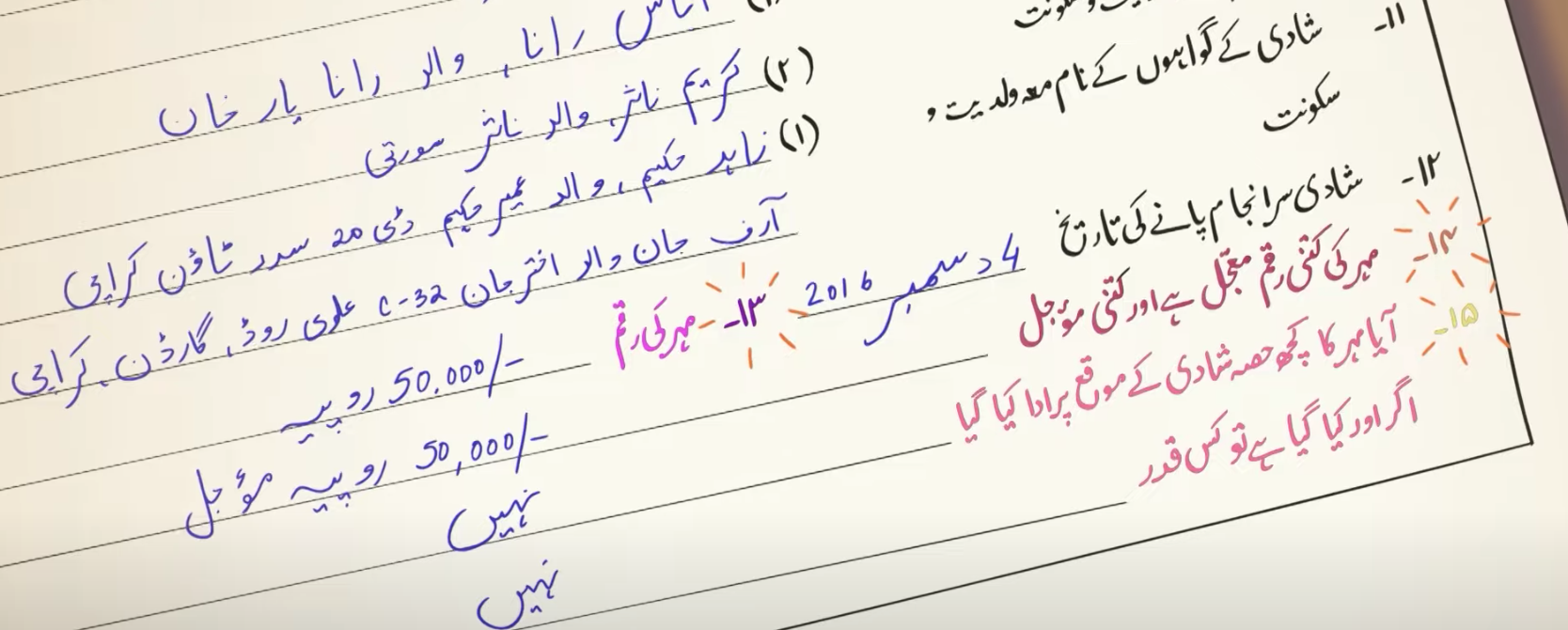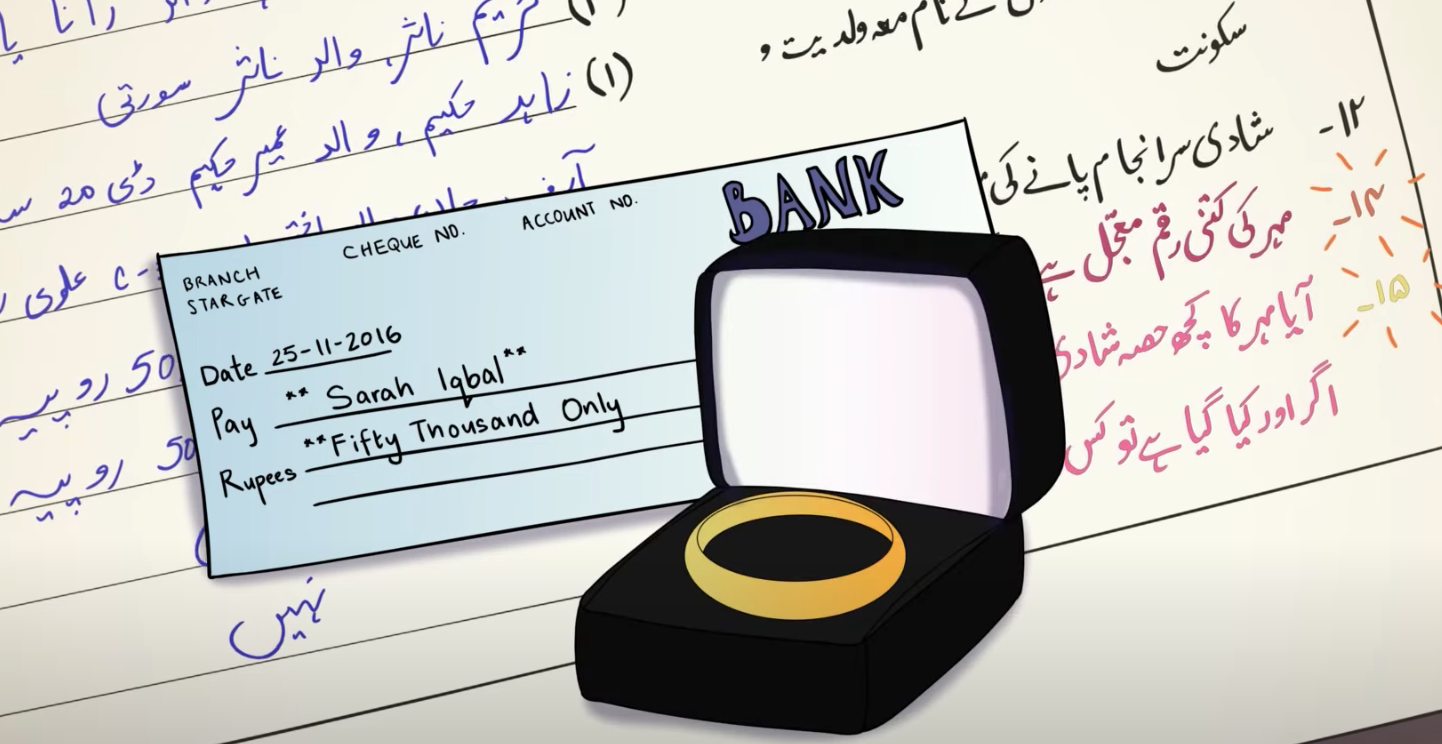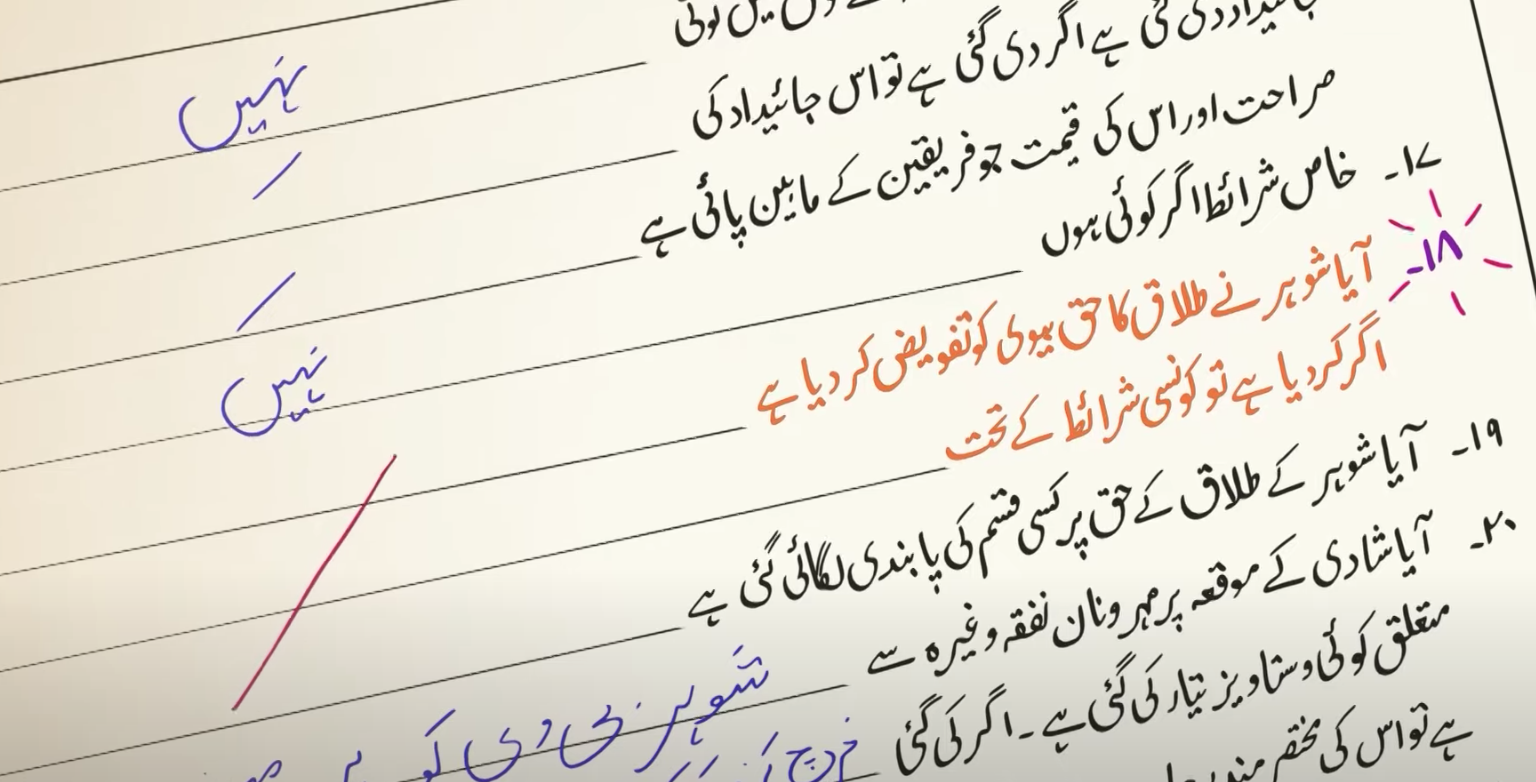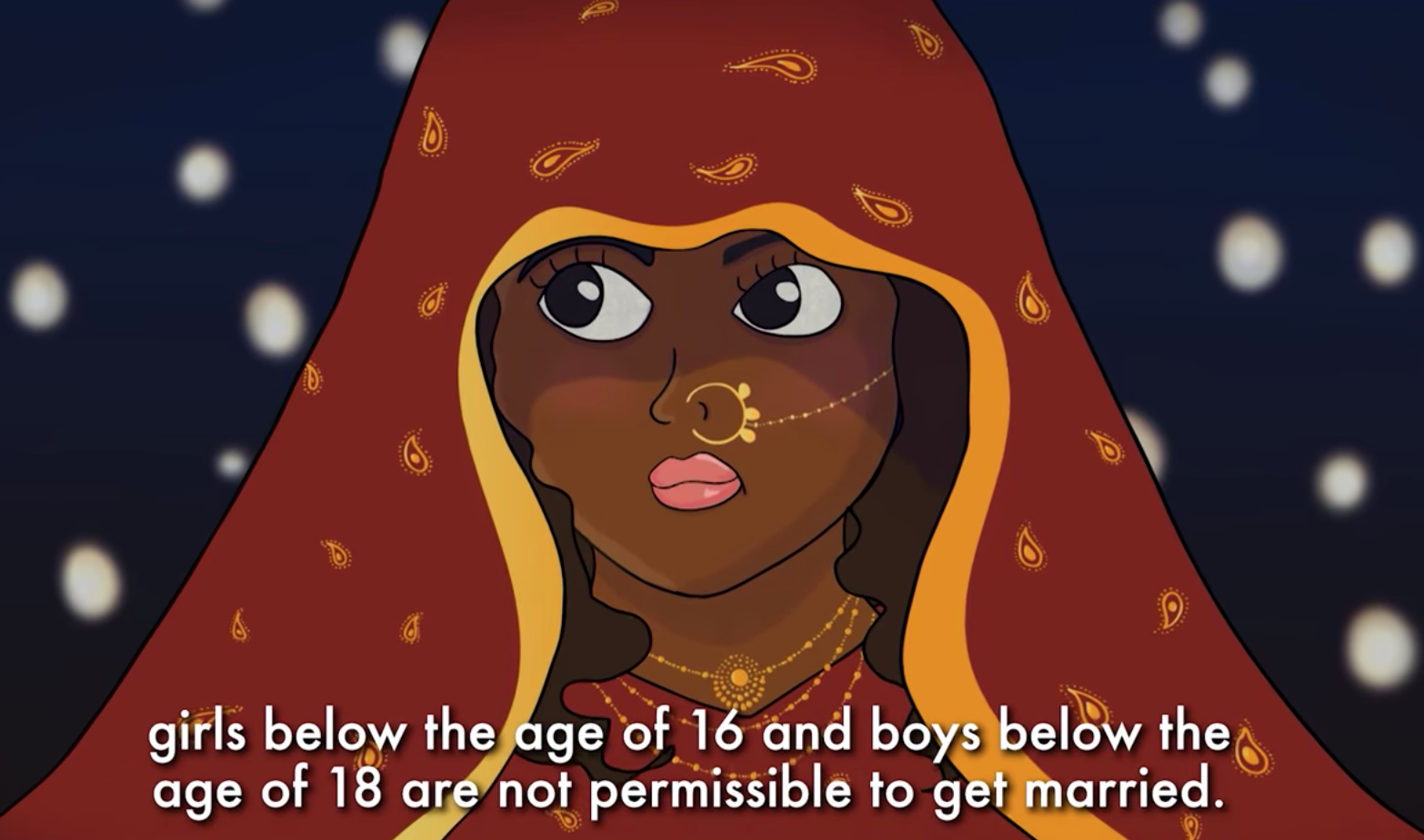- The Ministry of Human Rights Pakistan, in collaboration with SOC Films, has released a short film to educate women about their rights within the Nikkah Nama.
- The video emphasizes important sections of the Nikkah Nama, including financial rights and obligations and the right to ‘Khula’ (divorce).
- The educative film serves as a valuable tool for empowering Pakistani women.
Pakistani culture and marriage go hand in hand. At the heart of this union lies the Nikkah Nama, a crucial legal contract that outlines the rights and responsibilities of both parties involved, the bride and the groom. \
As Pakistani women embark on the journey of matrimony, it becomes important to have knowledge on the details of the Nikkah Nama before sealing the deal.
Over time, many brands, NGOs, and government entities have helped empower women by providing them with the knowledge to make informed decisions about one of the most important days of their lives.
5 Things to Check Before Signing the Nikkah Nama
The marriage contract is a legal document that solidifies the marital bond between a couple. Comprising of 25 sections, it serves as a roadmap for the rights and obligations of both parties. While it is a standard document, its interpretation and application may vary, making it crucial for women to be well-versed in its contents.
1. Details on ‘Haq Mehr’
It is essential that the financial terms outlined in the Nikkah Nama, including dowry and maintenance, are checked properly by the bride. Clarify the details of the ‘Haq Mehr’ which is the financial settlement due to the woman in case of divorce or becoming a widow. Women can ask for the Haq Mehr which they deem fit instead of what the family decides, the decision should be undertaken keeping in mind multiple considerations.

Also Read
Toll-Free Helpline Established for Protection of Women’s Marriage Rights in Punjab
2. Financial Allowance
In section 20 of the Nikkah Nama, a monetary allowance can be specified and added to the contract. This specifies the amount that the husband will be providing the wife every month or as per what they have decided.

3. The Rights of the Woman to Take ‘Khula’
Familiarize yourself with the clauses related to divorce and the process outlined in the Nikkah Nama. In section 18 and 19 the video states that the two sections are sometimes crossed out to take away the right to divorce from the woman. While signing, one should pay heed to these two sections and seek legal advice if any clauses seem unclear or potentially restrictive.
Also Read
Pakistani Shaadi Season Trends 2022 to Glam Up Your Wedding

4. Conditions & Restrictions
Pay attention to any special conditions or restrictions specified in the document. Ensure that the terms align with your personal values and expectations.
5. Groom’s Marital Status
The groom’s marital status is mentioned in Section 21 of the Nikkah Nama and is an important detail to be checked. If the groom has been married previously he must pronounce so in this section. If this is his second marriage, the groom must state whether the first wife has provided permission for the marriage to take place.
In some cases, women find out later on that the man they are married to already has a wife. These little details could save multiple women from being cheated into becoming second wives.
Also Read:
This Clothing Brand is Giving Nikkahnama Awareness, Asking People to Read Before Signing It
Empowering Women through Educative Films
The short film produced by the Ministry of Human Rights and SOC Films serves as a valuable tool for educating Pakistani women about the intricacies of the Nikkah Nama. By encouraging women to thoroughly read and understand this legal contract, the initiative aims to empower them to make informed decisions about their marital rights and responsibilities.

As women play a pivotal role in shaping the future of Pakistani society, knowledge about their legal rights is fundamental. Through initiatives like this, Pakistan takes a step forward in fostering a society where women are informed, empowered, and equipped to navigate the complexities of marriage with confidence and agency. So, let’s spread the message—know your rights, understand your Nikkah Nama, and empower other women to do the same.
Follow WOW360 for more.
